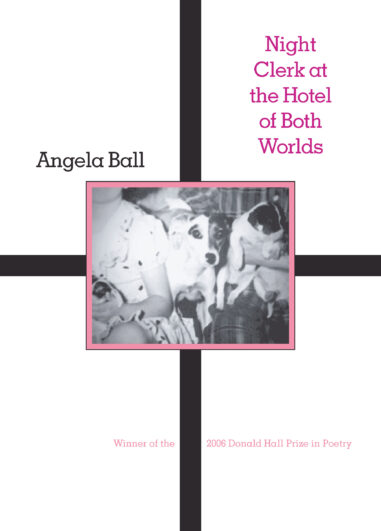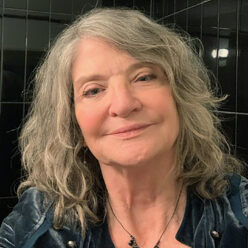
Paperback $20.00
Request Exam or Desk Copy. Request Review Copy
Night Clerk at the Hotel of Both Worlds
At once literary and conversational, enigmatic and lucid, exuberant and wounded, these nimble poems wed the world of imagination to the world of experience. Every jaunty line explodes in at least two directions: devilishly up into the mind; ardently down into the heart.

